Are you ready to take the next step in your pharmaceutical career? Crafting a compelling cover letter can make all the difference in landing that dream job, showcasing not just your qualifications but also your passion for the industry. In this article, we'll guide you through the essential components of a standout cover letter that conveys your unique value to potential employers. So, let's dive in and explore how you can make your application shine!
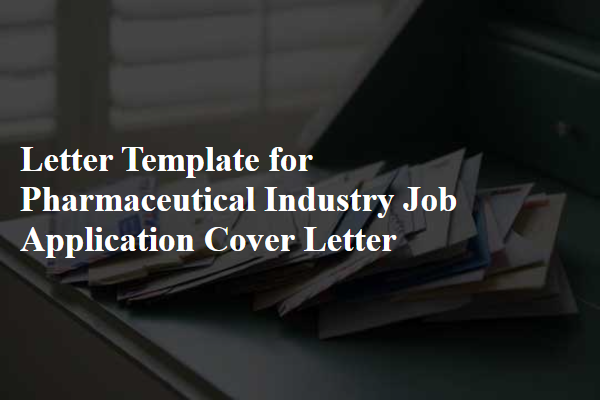
Tailored Introduction
In the competitive pharmaceutical industry, a tailored introduction for a job application cover letter helps establish a strong connection between the applicant and the specific role. Highlighting relevant educational background, such as a Doctor of Pharmacy (PharmD) degree or a Master of Science in Pharmaceutical Sciences, can underscore expertise. Mentioning practical experience gained through internships at reputable companies like Pfizer or Johnson & Johnson accentuates hands-on skills in drug formulation or clinical research. Recognizing the specific job title, such as Clinical Research Associate or Regulatory Affairs Specialist, demonstrates focused interest and alignment with the company's objectives. Acknowledging key industry trends, such as the growing emphasis on personalized medicine or biotechnology advancements, further positions the applicant as an informed candidate eager to contribute to innovative solutions.
Relevant Experience and Skills
A comprehensive knowledge of regulatory compliance in the pharmaceutical industry is essential for success. Familiarity with the Food and Drug Administration (FDA) regulations and guidance documents ensures adherence to industry standards. Experience conducting clinical trials, particularly Phase I through Phase IV trials, provides valuable insights into drug safety and efficacy. Proficiency in using software applications such as SAS, R, or SPSS for data analysis enables the interpretation of complex clinical data sets. Additionally, strong communication skills facilitate effective collaboration with cross-functional teams, essential for tasks ranging from Research and Development (R&D) to marketing. Knowledge of Good Manufacturing Practices (GMP) safeguards product quality, while an understanding of pharmacovigilance flows helps in monitoring drug safety post-market. Solid project management abilities, reflected in the successful handling of multi-million dollar projects, contribute to meeting timelines and budgetary constraints.
Knowledge of Industry Standards
Understanding industry standards, such as Good Manufacturing Practices (GMP) and International Organization for Standardization (ISO) guidelines, is crucial for success in the pharmaceutical sector. These regulations ensure safety and quality in drug development processes. Familiarity with specific protocols, including 21 CFR Part 211 (for finished pharmaceuticals in the United States), informs professionals about necessary compliance measures for production. Additionally, awareness of the FDA's stringent approval processes accelerates drug launch timelines while maintaining efficacy. Knowledge of clinical trial regulations under ICH-GCP (International Council for Harmonisation - Good Clinical Practice) is essential for overseeing research integrity. Mastery of these standards demonstrates a commitment to upholding public health and advancing pharmaceutical innovation.
Alignment with Company Values
Pharmaceutical companies, like Pfizer and Johnson & Johnson, often prioritize innovation and patient care in their mission statements. Demonstrating alignment with these values showcases commitment to advancing healthcare. Empathy towards patients dealing with chronic illnesses, such as diabetes or cancer, reflects a deep understanding of industry impacts. Highlighting experience in research and development roles, focusing on drug efficacy and safety, can reinforce dedication to improving lives. Engaging in collaborations with healthcare professionals, using real-world evidence to support clinical decisions, emphasizes a team-oriented approach. Familiarity with regulatory compliance, including adherence to FDA guidelines, also illustrates a responsible workplace ethos. Understanding the importance of ethical practices in clinical trials further aligns personal values with broader company objectives.
Strong Closing Statement
A strong closing statement in a pharmaceutical industry job application emphasizes your enthusiasm and suitability for the role. Highlight your relevant experiences, such as working in clinical trials or drug development, and reiterate your commitment to advancing healthcare. Express your eagerness to contribute to the company's goals, especially regarding innovations in patient care and medication efficacy. Mention your intention to discuss how your background aligns with the company's needs during a potential interview. Thank the hiring manager for considering your application, and express anticipation for their response, showcasing your genuine interest in the position at a leading pharmaceutical firm.
Letter Template For Pharmaceutical Industry Job Application Cover Letter Samples
Letter template of an application letter for a research scientist in pharmaceuticals
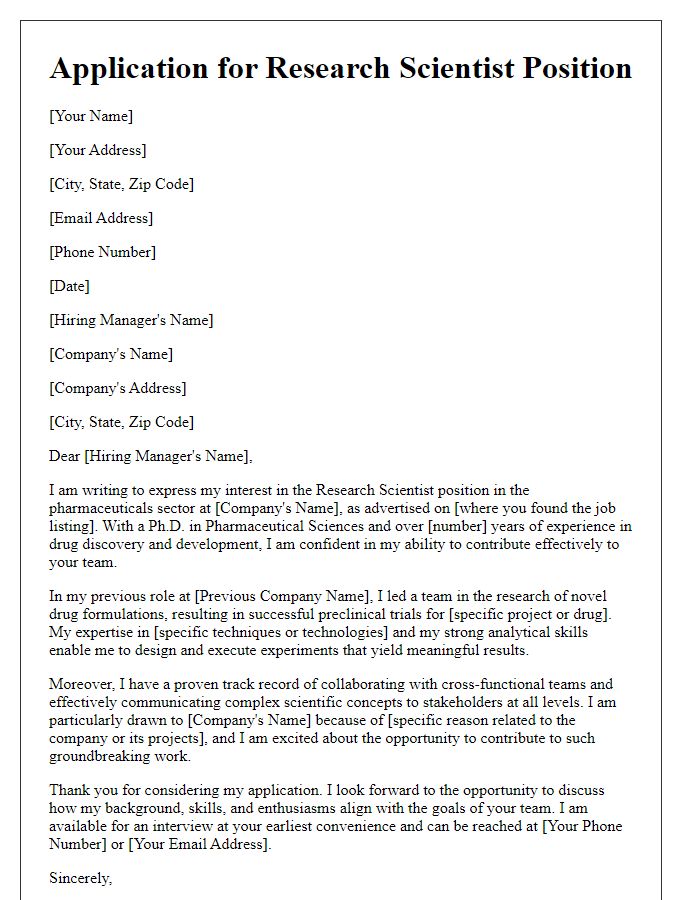
Letter template of a cover letter for regulatory affairs in the pharmaceutical sector
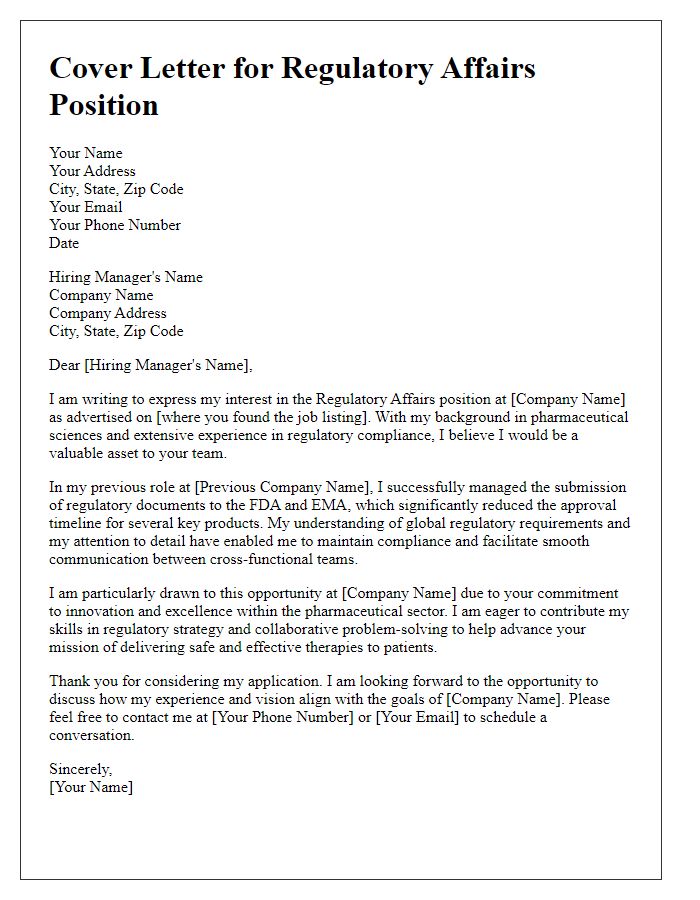
Letter template of an application letter for pharmaceutical marketing roles
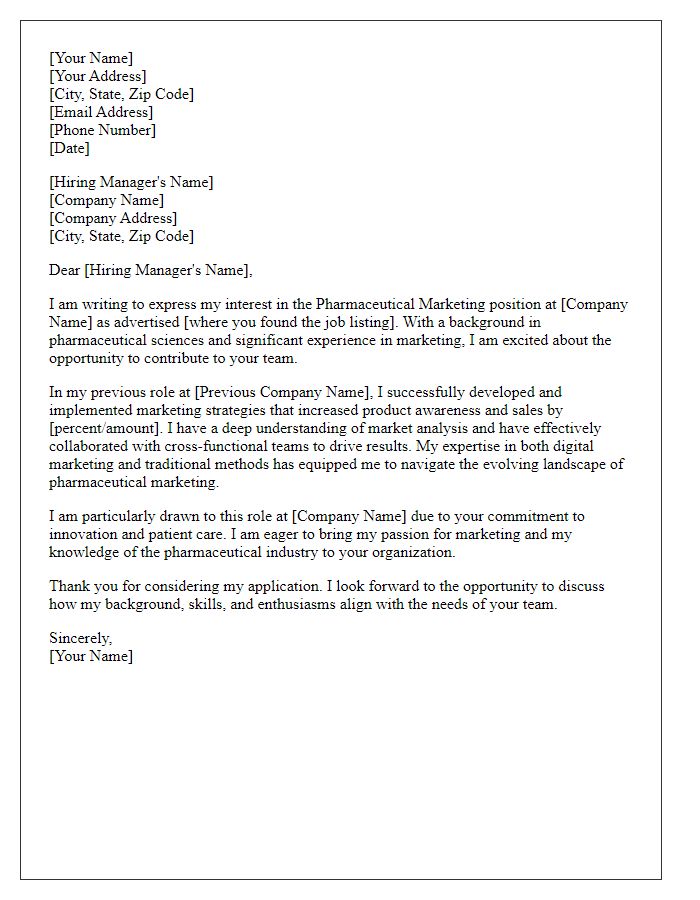
Letter template of a cover letter for clinical research associate positions
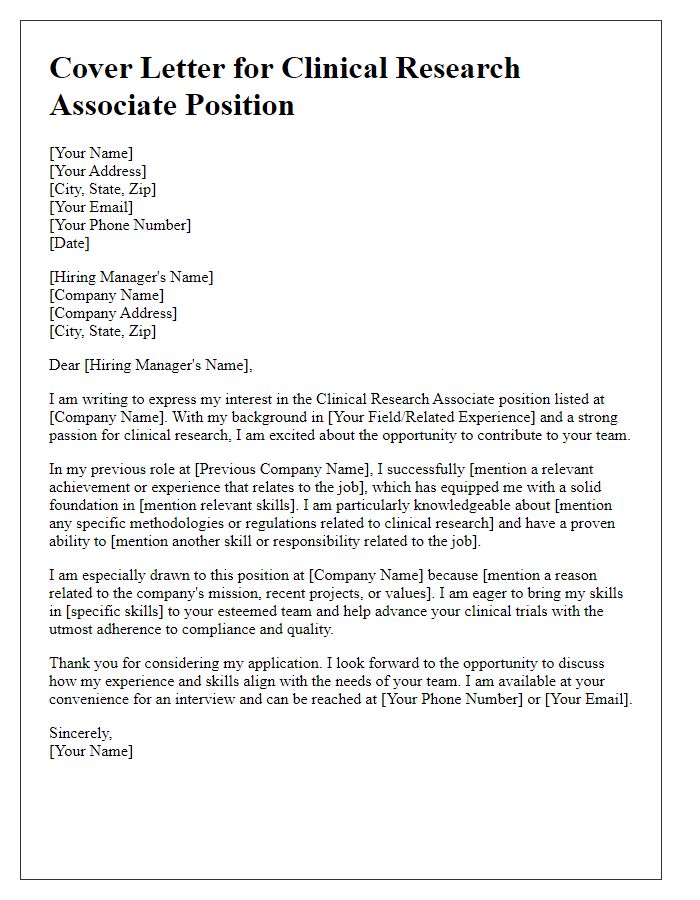
Letter template of a cover letter for a quality control analyst in pharmaceuticals
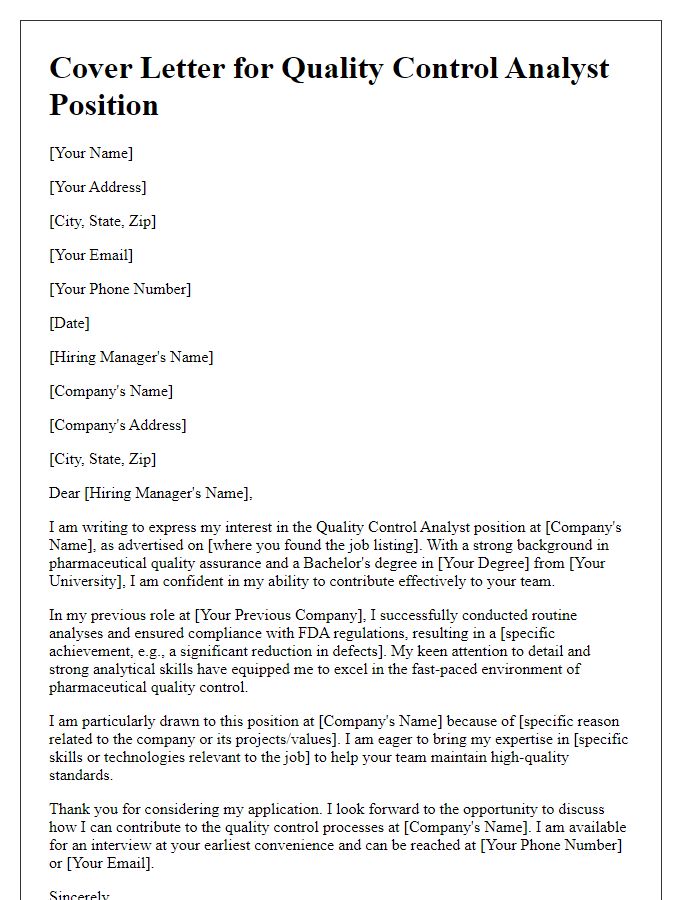
Letter template of an application letter for pharmaceutical project management
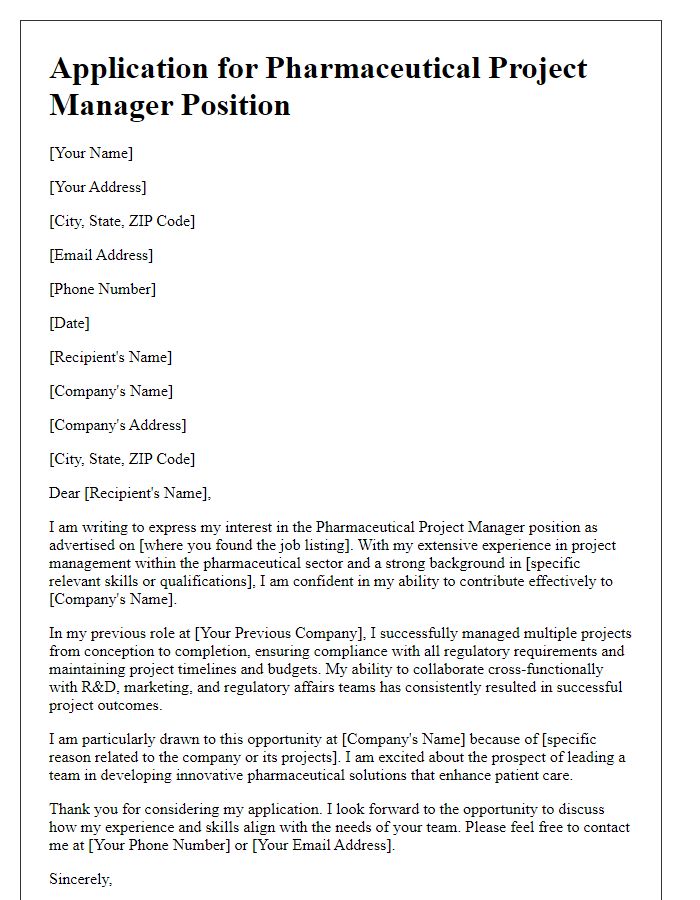
Letter template of a cover letter for manufacturing roles in the pharmaceutical industry
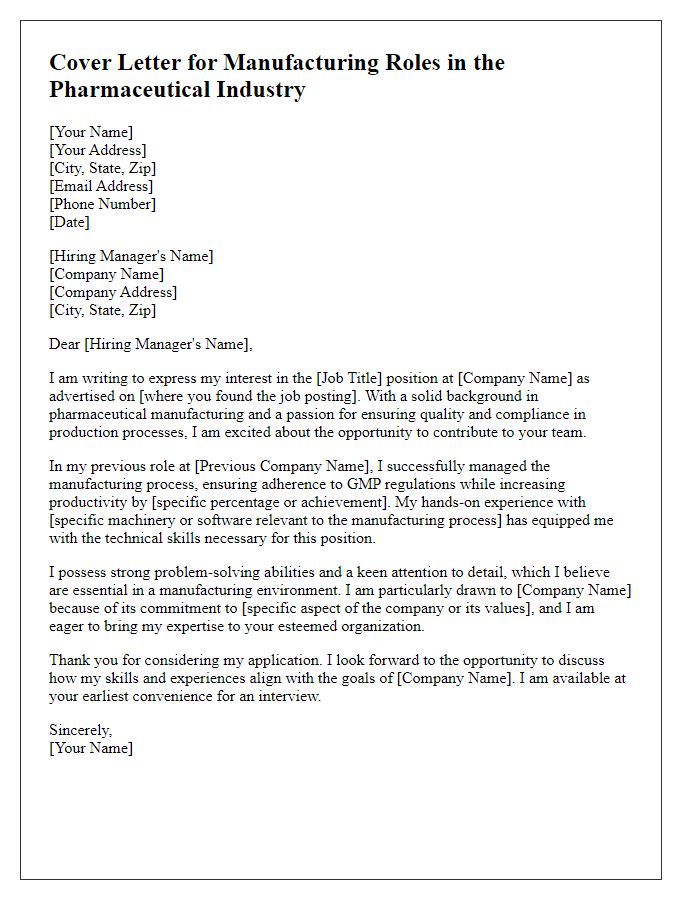
Letter template of an application letter for a pharmacovigilance specialist
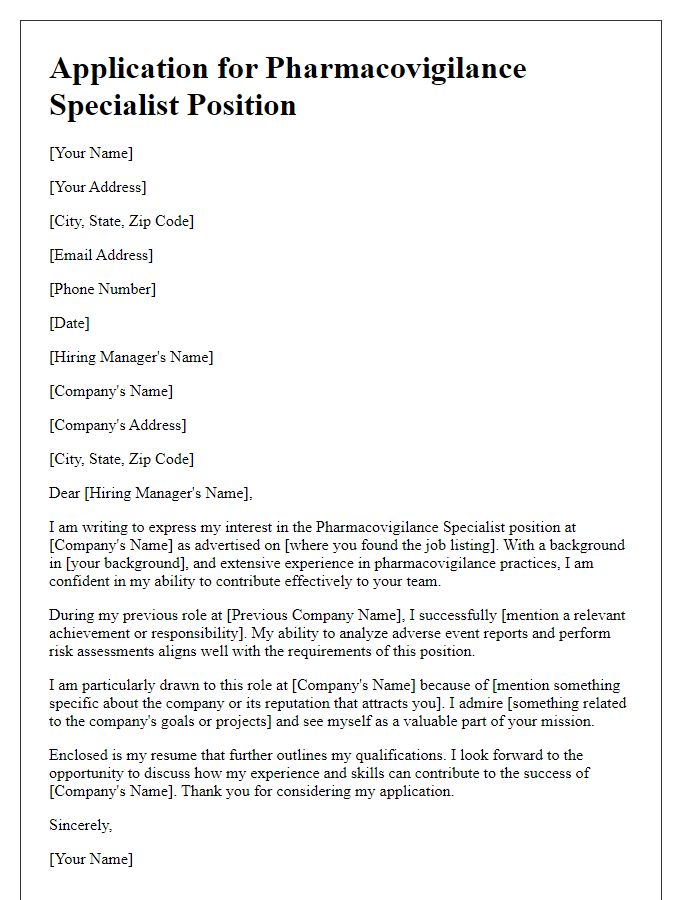

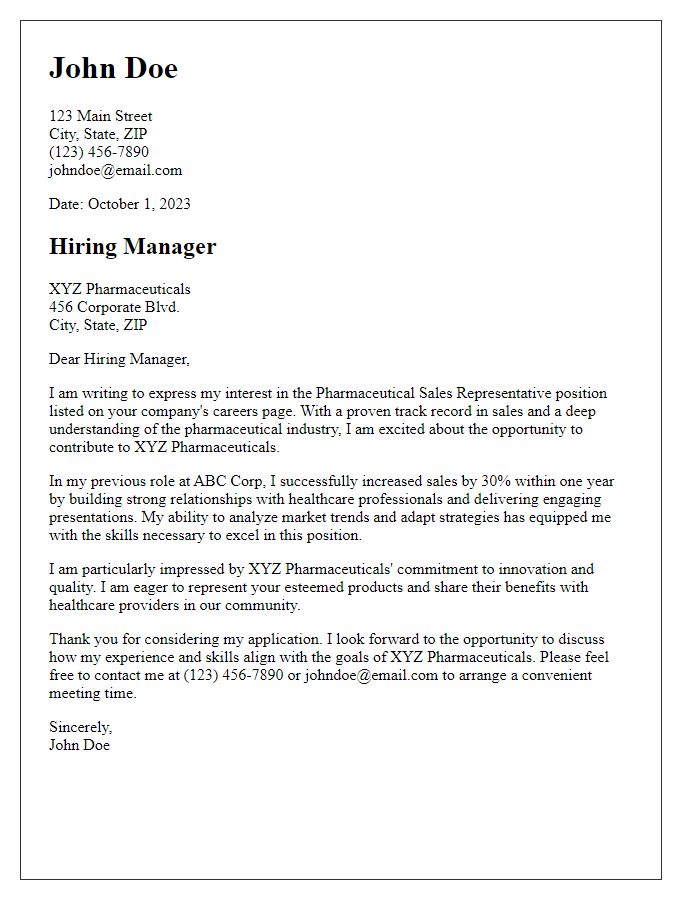
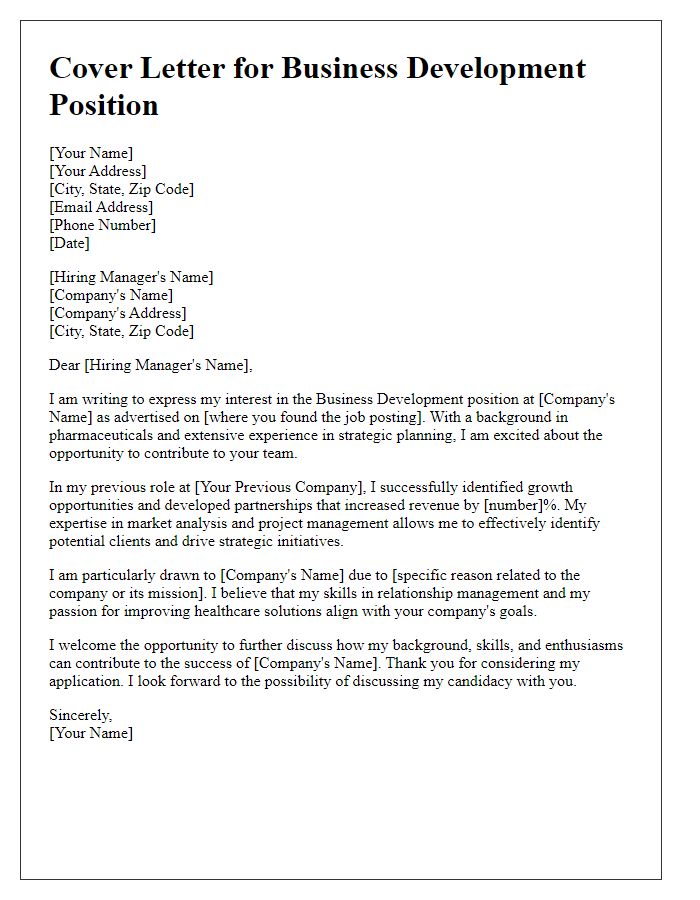


Comments